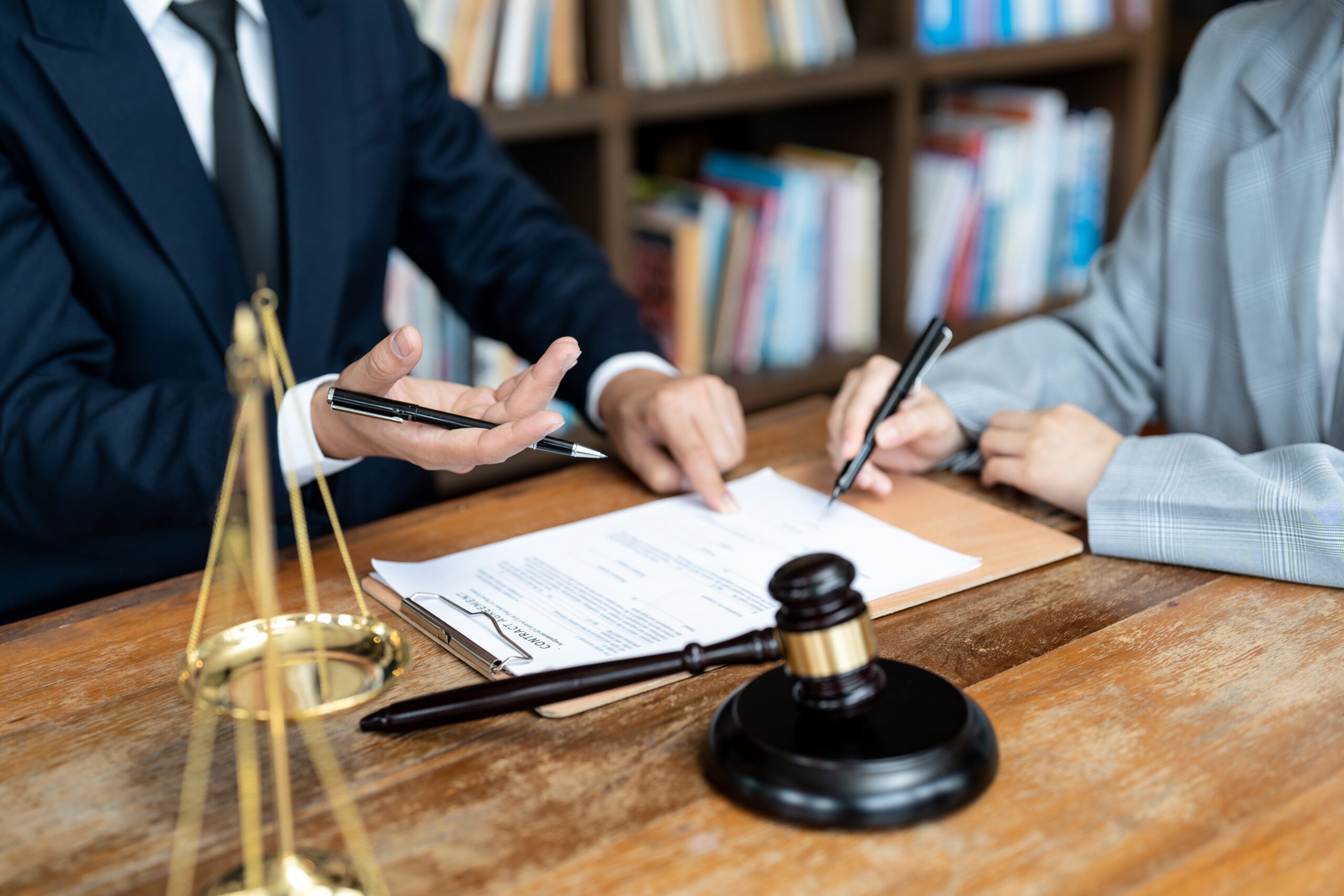Article takeaways
- Gather the will, death certificate, insurance proof, bank and investment account information, real estate documentation, and hire appraisers for valuable items like art.
- As executor or estate administrator, it’s your responsibility to inventory assets, tally debts, pay creditors, manage property, and file tax returns before distributing anything to beneficiaries.
- Stay organized by creating a filing system, keeping duplicate copies of documents, and maintaining updated records to avoid stress and legal complications.
- Consider professional help and hire a probate lawyer, tax professional, and appraisers as needed to handle complex legal and financial matters correctly and efficiently.
No matter how many times we’re forced to go through it, losing a loved one is difficult. And if you’ve been named Executor of their will or put in charge of deceased estate administration, it adds a layer of complexity to the situation.
But you’re not alone. We’re here to walk you through the process, and we’ll point out some resources who can help you navigate settling their estate account without running into legal problems.
If you have recently become an executor or personal representative of a loved one’s estate account, the process may seem daunting and may have you overwhelmed if you don’t know where to start.
By staying organized and knowing what steps need to be taken, managing property, filing a tax return, and understanding all of the documents that correlate with this legal process can help put you at ease.
Probate lawyers divide the process into three stages: probate proceedings, asset control or decedent’s assets management, and deceased estate settlement.
For the sake of clarity, we’ve divided those three stages into 10 simple steps you can follow to manage a deceased estate. We’ll also discuss how Storage.com can help you find a safe and affordable storage unit to hold any of your loved one’s belongings while you process their passing and decide what to do next.
1. Locate Important Documents and Appraisals
Since you have already been notified that you are the personal representative for your loved one’s estate, chances are you have located their will. However, other important documents that you need to have in your possession include a copy of their death certificate, trust assets information, proof of their insurance, investment account information, bank account information, real estate property documentation, and past employment documentation.
If your loved one was receiving Social Security, it is also important to notify the agency as soon as possible of the death. This is important to remember so you can avoid having to go through the process of returning a Social Security check. If your loved one was an art lover or collector, and you can’t find the values of particular pieces, put the art in secure storage and contact an art appraiser. They’ll be able to give you a documented appraisal for any items you may have questions about.
2. Apply For Probate
Every state is different when it comes to applying for probate. Review your state laws to see if the estate you are handling must go through probate court. If the answer is yes, the probate court will legally recognize you as the executor with letters testamentary, also known as surrogate certificates.
These certified documents serve to prove that you have been legally recognized as the estate administrator and can act on behalf of your deceased loved one’s estate.
It’s the estate administrator’s responsibility to collect all the “probate assets,” use them to pay off the debts and current incoming bills, and file a tax return.
- As estate administrator, your first task will be to take an inventory of the deceased person’s real estate assets, investments, digital assets, bank accounts, and personal property.
- You’ll also need to tally up their debts and liabilities –things like mortgages, credit card balances, and unpaid bills.
- Your last step will be to communicate with the beneficiaries and access bank accounts to disperse what’s left after all debts are settled.
3. Contact Individuals Mentioned in the Will’s Beneficiary Designations
Contact all the beneficiaries who were named in the will and let them know your loved one is deceased and that they’ve been designated as a beneficiary.
But you’ll also have to let them know that none of the assets, no matter how big or small, can be distributed until the probate process has been completed and all creditors have been paid in full.
4. Consider Hiring a Probate Lawyer
Here at SelfStorage.com, we pride ourselves on our passion for research. But we’re storage experts at the end of the day and can only give you so much legal advice.
When it comes to offering legal help with filing court documents to settle an estate and explaining all the legal terms, it may be best to hire a professional probate lawyer or estate attorney.
This is especially true if arguments arise between beneficiaries, or if you need some help explaining to them why they have to wait until debts are settled before they get their designations.
An estate planning attorney specializes in settling estate accounts and will handle much of the paperwork at each step of this process.
Estate attorneys can explain the probate laws and answer any questions your family may have as part of their legal services package, ensuring that your family and the assets noted by your loved one are not tied up in a courtroom any longer than necessary.
5. Stay Organized
With so many documents, checks, and other important paperwork on your desk, it is important to stay organized to ensure all records are being kept up-to-date. Creating a designated filing system for all of your loved one’s paperwork will help keep everything in order and easy to find.
When it comes to settling an estate account, it’s always a good idea to make duplicate copies of paperwork that you send to creditors and other outside parties, just in case any questions arise later.
When you get toward the final stages of this process, you will need to compile a final accounting that will need to be approved by all beneficiaries involved. Staying organized will help you stay stress-free from start to finish.
6. Pay Off Valid Creditors
As the executor, it is your responsibility to ensure that any outstanding debt that your loved one had gets paid. If the debt is more than the worth of their assets, inheritors are not liable for settling the difference.
If the estate’s assets can’t cover the entire cost of any outstanding debt, the state prioritizes the creditors over the inheritors named in the will.
If your loved one did not maintain an organized budget for you to review, some of the first places to look for outstanding debts are in their incoming mail, checkbook, email accounts, and past tax returns.
Once you identify all the creditors and unpaid bills that are owed, it’s your responsibility to notify them of the deceased person’s passing and to use the estate funds to pay their balances.
7. Manage Any and All Property
When it comes to managing the property your loved one owned, the main concern is protecting the area(s) from damage. That said, you’re also responsible for valuing any commercial or residential real estate and including it in the asset inventory. If you do not know how much the real estate is worth, you must hire a property appraiser to give you a quote.
If your loved one was a business owner, you may need to take steps to ensure that the business is kept running until further decisions are made about its future. Remember that vehicles indeed need to be appraised and valued as well. In the meantime, be sure their vehicles are stored in a safe place where they are ot incurring weather damage and losing value by the day.
8. File Tax Return for Deceased Party
When filing a tax return on your deceased loved one’s behalf, consider using a tax professional who can help make that stack of paperwork a stress-free experience.
A professional can help solve any issues involving more complex inherited assets such as a residence, tax rebates, pension schemes, investments, savings capital, stocks and bonds, or retirement accounts.
- A pro appraisal also helps ensure adequate insurance and value financial assets for the estate tax return.
- For estates owing no federal estate tax, estimates can be used on the estate tax return to lower appraisal costs.
A tax expert can also give you a rundown of all of the important information you will need to bring with you to an appointment to make sure that the tax return is filled out correctly and both the income and estate taxes are covered.
9. Distribute to Beneficiaries
Now for the fun part! After all debts have been paid, it is your job as the executor to make sure that every beneficiary receives what they were promised in your loved one’s will or in accordance with the law.
During this distribution process, trusts and trust administration may need to be established if noted in the will. And remember, the court will require proof that the beneficiaries were paid and that the appropriate amount of inheritance tax was recovered.
Be sure to keep a record of all payments you issue that you can present to the court in the next step.
10. Finalize Estate in Probate Court
After the creditors, beneficiaries, and other financial decisions have been made or fulfilled, the final accounting that you complete will be reviewed by the court.
The final accounting must include any distributions, expenses, and any type of income earned by your loved one’s estate since their death. Once all of the accounting has been approved by the beneficiaries and the court, the court will issue a final report and close the estate.
How To Manage a Deceased Person’s Estate: Storage.com Can Help With Asset Control
Now you understand the basic steps of how to manage a deceased estate. Dealing with a deceased person’s estate requires a detailed estate plan and constant communication with the other loved ones named in the will.
Your estate plan also requires you to contact debtors and bill collectors and settle all accounts of your deceased loved one.
Remember, while our helpful guide can provide you with the basic steps to take when navigating deceased estate administration, the process gets more complicated depending on the estate tax return details, creditor debts, and real estate situations.
Don’t be afraid to consult the professional legal advice of a probate lawyer to ensure you are aware of any legal terms and financial or legal obligations you don’t understand, so you’re not liable for any mistakes.
Have thoughtful discussions with your loved ones and any other beneficiaries so everyone involved has a clear understanding of the situation.
And remember, you can always sell the contents of the inherited property through a professional or DIY estate sale to generate the funds needed to settle accounts and cover burial costs, etc.
You may need a place to store their precious items while you search for buyers. Or maybe you need more time to sort through inherited personal belongings in peace while you process your emotions.
Either way, a storage unit will provide a safe location while you digest the situation and plan your next move.
But not all storage units are created equal. For example, you may want a climate-controlled unit if you’re storing electronic items, books, or antique furniture.
Valuable items should be kept in a storage facility with security features like surveillance cameras and on-site security personnel.
But managing a deceased estate puts enough on your plate, leaving little time for finding places to keep all your loved one’s valuable items while you decide what goes where, what you want to keep, and what to sell.
That’s where we come in.Let Storage.com help you find a storage unit near you if you need to secure sizable items, items you haven’t yet decided how to address, or any items that require more time to manage.




![Relocating RVs: An Expert Guide to Finding RV Relocation Deals and Cheap Motorhomes for Rent [2025]](https://www.storage.com/blog/wp-content/uploads/2025/03/shutterstock_2573183495-scaled.jpg)

